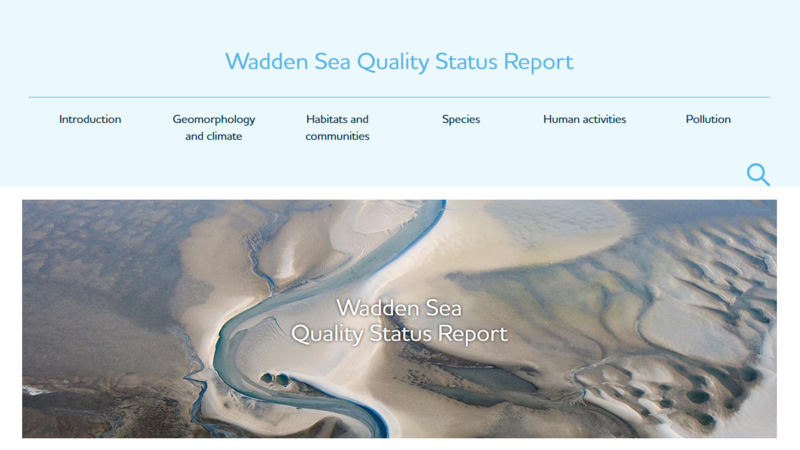Updates to nine thematic reports of the Quality Status Report published

The Wadden Sea Quality Status Report (QSR) is a conglomeration of thematic reports reflecting the continuous monitoring and evaluation of the ecological status of the Wadden Sea, including islands and offshore areas. The compiled information traditionally feeds into the lnternational Scientific Wadden Sea Symposia (ISWSS) and the Trilateral Governmental Conferences (TGC). In 2017, the QSR was upgraded from a PDF file to the widely accessible online portal qsr.waddensea-worldheritage.org with the aim of integrating updates to the thematic reports directly into the platform. Now, nine thematic reports received complete updates, displaying assessments on birds, marine mammals, alien species, and fish populations, as well as on subtidal habitats, energy, and tourism.
“The Quality Status Report is not a straight-forward publication”, says Sascha Klöpper, CWSS Deputy Executive Secretary and QSR coordinator. “The thematic reports are products of altogether over 100 experts from the Wadden Sea region and beyond. Each report is written by a handful of experts and peer-reviewed by an editorial board. A lengthy but essential process to get a viable review of Wadden Sea data, which we are very proud of the in the Trilateral Wadden Sea Cooperation.” The reports analyse trends and the direction of change as well as long-term trends while considering the shifting environmental factors, pressures, and human activities.
The key findings of the 2022 QSR update highlight alternating animal populations trends. Under consideration of deviating trends for single species, migratory birds, breeding birds, and the integrated assessment of harbour porpoises within the marine mammals report show overall downward numbers, alien species, fish, and harbour and grey seals show the opposite. Due to anthropocentric and environmental effects, arctic breeding and long-distance migratory waders are in a trough, despite the growth in most flyway trends. The evaluation of habitats and species composition and their variability over space and time is still subject to ongoing research. In the QSR section of human activities, the status of fossil and renewable energy production efforts and their impacts on the environment are reviewed. It also addresses the varying impacts of tourism in relation to economic stability and environmental awareness.
As part of the Trilateral Monitoring and Assessment Programme (TMAP), the QSR supports delivering an assessment of the overall status of the Wadden Sea environment. It forms the baseline for the identification and review of new emerging challenges. The QSR helps identify and fill knowledge gaps and priorities for the improvement of the ecological status of the Wadden Sea. It is a tool for interpreting the periodic reporting data into concrete amelioration measures and recommendations while allowing their assessment. The 2022 QSR is expected to receive further additions in other thematic sectors such as fisheries, climate change, and shipping later this year.
